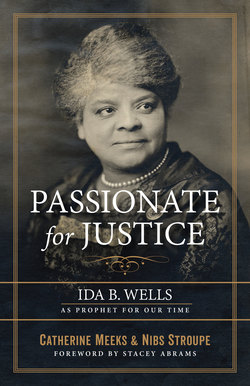Читать книгу Passionate for Justice - Catherine Meeks - Страница 7
На сайте Литреса книга снята с продажи.
ОглавлениеPreface
I met Nibs Stroupe for the first time one Sunday a few years ago when he stood at the small podium in the dining room–turned–sanctuary at Open Door Community. It never occurred to me then that we would come to this day, coauthoring a book on this woman who is very precious to me.
Nibs and I grew up less than forty miles from one another in Arkansas. He lived in Helena and I lived in a small community called Moro. Though as a little white boy his life and experience were very different from mine in many ways, there are so many ways in which we were walking a parallel path. As you read this book, you will begin to see the ways in which this parallel path was forged, and how our souls were kin to one another, though we were some miles apart geographically and, in many ways, light years apart culturally in our little Arkansas oppressive worlds. Both of us were poised toward the search for liberation from our earliest days and while we had no way to name that quest, there was an inexplicable spirit of grace that moved us along that path and kept us in its protective grip in order to make sure that we found the path.
Both of us are grateful that we found the path and that God’s grace has helped us to stay on that path of the search for personal and collective liberation. Though Nibs, along with his wife, Caroline, had the good fortune to pastor a progressive congregation in Atlanta and I have enjoyed a productive professional life as an academic, we continue to be unwilling to settle for easy answers and the cheap liberation that avoids the struggle of building deep relationships across lines of difference.
What does it mean to be a liberated person? This question has fueled the inner and outer journeys for both of us for many decades and we are grateful to continue to have the courage to ask ourselves that question even though we have caught few glimpses of the answer. Thus, here we are two Arkansans, one African American female and one white male, taking a look at one of the most powerful women in our historical record through our respective lenses. Nibs is correct that this is not a book that a white man should have tried to write alone and I think that the conversation in this book has been enriched by our writing it together; Wells invites us into spaces that we might prefer to avoid on our own. It is critically important for all people, whether white or people of color, to learn how to have honest conversations about issues of race without seeing the difficult parts of those conversations as an invitation to vacate the path to healing. We have been able to engage one another in ways that would not have happened if we had been working on this book alone. We were both enriched and challenged by working together and offer this book to all of the readers with the hope that it will have a similar enriching effect.
We hope that the conversations that we have forged both in the words of the text and in our own hearts will be a source of encouragement, challenge, and example to all who read this book of ways that we can embrace the journey of racial healing. We hope that all who read this book will be challenged to be more than a half shade braver in the daily journey of working to be more open to that deep call from the heart to seek racial healing and wellness both as an individual and for the whole community.
—Catherine Meeks
